Our Ingredients
In this page you will learn more about the products we use in our skin care range. Although the focus is on benefits provided by the products for skin care, some of the information is relevant to good nutrition. Of course, our skin care products are not for consumption but we do encourage customers to make good food choices as well because a healthy diet plays a vital part in maintaining healthy glowing skin and health in general.
Plant oils
Apricot Kernel
 Organic apricot kernel oil is rich in gamma linoleic acid, GLA, which comes from essential fatty acid omega-6. The GLA content in apricot kernel oil helps skin to maintain moisture balance. GLA also plays a role in firming and toning your skin. The oil contains vitamins A and E, which soothe the skin and slow signs of aging. The nourishing properties of apricot kernel seed oil have an anti-inflammatory effect and may soothe minor skin conditions such as eczema. Apricot kernel seed oil is light and good to moisturise balanced skin, oily skin and hormone reactive skin and is suitable on the face. Especially useful for oily complexions, it is still gentle enough to use on any skin type and will also help rehydrate dry skin.
Organic apricot kernel oil is rich in gamma linoleic acid, GLA, which comes from essential fatty acid omega-6. The GLA content in apricot kernel oil helps skin to maintain moisture balance. GLA also plays a role in firming and toning your skin. The oil contains vitamins A and E, which soothe the skin and slow signs of aging. The nourishing properties of apricot kernel seed oil have an anti-inflammatory effect and may soothe minor skin conditions such as eczema. Apricot kernel seed oil is light and good to moisturise balanced skin, oily skin and hormone reactive skin and is suitable on the face. Especially useful for oily complexions, it is still gentle enough to use on any skin type and will also help rehydrate dry skin.
Avocado
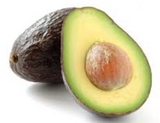 Avocados contain poly- and mono-unsaturated fatty acids, which protect your skin. Monounsaturated fats keep the top layer of your skin moist so it’s soft and healthy looking. Polyunsaturated fatty acids guard skin from sun damage and protect against symptoms of skin sensitivity and inflammation. Antioxidants found in avocados, such as carotenoids, vitamin E and vitamin C, help protect against the damage of free radicals. Lutein found in avocado promotes the water content and elasticity of skin and decreases the destruction of beneficial skin lipids. Vitamin E protects you from ultraviolet light. Vitamin C is helps our bodies make collagen, which is the main structural component of skin and the source of its elasticity and firmness. Aging and dry skin benefit especially from avocado.
Avocados contain poly- and mono-unsaturated fatty acids, which protect your skin. Monounsaturated fats keep the top layer of your skin moist so it’s soft and healthy looking. Polyunsaturated fatty acids guard skin from sun damage and protect against symptoms of skin sensitivity and inflammation. Antioxidants found in avocados, such as carotenoids, vitamin E and vitamin C, help protect against the damage of free radicals. Lutein found in avocado promotes the water content and elasticity of skin and decreases the destruction of beneficial skin lipids. Vitamin E protects you from ultraviolet light. Vitamin C is helps our bodies make collagen, which is the main structural component of skin and the source of its elasticity and firmness. Aging and dry skin benefit especially from avocado.
Blackberry Seed
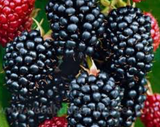 Blackberry seed oil is an excellent source of antioxidants, notably vitamin E tocotriencols, tocopherols and lutein as well as vitamin C. It also has phytosterol beta-sitosterol and zeaxanthin and a wide range of omega-3 and omega-6 fatty acids. It helps relieve skin suffering from itching, eczema, scalyness and psoriasis and helps treat blotches, wrinkles, acne, skin blemishes and large pores. It is an effective moisturiser and improves skin elasticity, reduces dryness and skin lines. It is also excellent for the hair and scalp.
Blackberry seed oil is an excellent source of antioxidants, notably vitamin E tocotriencols, tocopherols and lutein as well as vitamin C. It also has phytosterol beta-sitosterol and zeaxanthin and a wide range of omega-3 and omega-6 fatty acids. It helps relieve skin suffering from itching, eczema, scalyness and psoriasis and helps treat blotches, wrinkles, acne, skin blemishes and large pores. It is an effective moisturiser and improves skin elasticity, reduces dryness and skin lines. It is also excellent for the hair and scalp.
Blackcurrant Seed
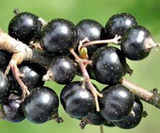 Blackcurrant seed oil is useful in skincare products as an anti-inflammatory oil to ease muscular and joint aches and pains and to assist with rosacea. It is very nourishing and revitalising for dry, ageing and damaged skin and excellent for ailments such as eczema and psoriasis. It is also excellent for sensitive skin and acts as an anti-ageing oil. It absorbs quickly and leaves the skin looking and feeling hydrated. It also has anti-viral properties, and studies have shown it is particularly protective against the influenza virus. Blackcurrant seed oil provides a very balanced fatty acid profile as it includes an excellent ratio of four essential fatty acids (your body needs these but cannot make them): omega 6, omega 3, gamma linolenic acid (GLA) and the rarely found stearidonic acid.
Blackcurrant seed oil is useful in skincare products as an anti-inflammatory oil to ease muscular and joint aches and pains and to assist with rosacea. It is very nourishing and revitalising for dry, ageing and damaged skin and excellent for ailments such as eczema and psoriasis. It is also excellent for sensitive skin and acts as an anti-ageing oil. It absorbs quickly and leaves the skin looking and feeling hydrated. It also has anti-viral properties, and studies have shown it is particularly protective against the influenza virus. Blackcurrant seed oil provides a very balanced fatty acid profile as it includes an excellent ratio of four essential fatty acids (your body needs these but cannot make them): omega 6, omega 3, gamma linolenic acid (GLA) and the rarely found stearidonic acid.
Calendula
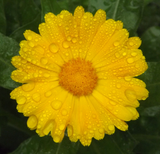 Calendula extract is rich in a variety of organic compounds, including glycosides, saponins, and other powerful anti-inflammatory and antioxidant compounds. As it also protects against infections, it keeps wounds and scrapes safe, allowing them to rapidly heal and has proven effective in helping cure stubborn wounds, acne, ulcers, bed sores, varicose veins, rashes, eczema. It also soothes and softens skin while improving blood flow to the skin. The anti-oxidants reduce the appearance of wrinkles and ages spots, and even the visibility of scars. Extracts have also been shown to have anti-tumour activity and stimulate the immune response.
Calendula extract is rich in a variety of organic compounds, including glycosides, saponins, and other powerful anti-inflammatory and antioxidant compounds. As it also protects against infections, it keeps wounds and scrapes safe, allowing them to rapidly heal and has proven effective in helping cure stubborn wounds, acne, ulcers, bed sores, varicose veins, rashes, eczema. It also soothes and softens skin while improving blood flow to the skin. The anti-oxidants reduce the appearance of wrinkles and ages spots, and even the visibility of scars. Extracts have also been shown to have anti-tumour activity and stimulate the immune response.
Coconut
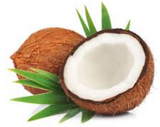 Coconut oil is famous for its use in foods as well as on the skin and hair. In the pacific islands where it is in plentiful supply, it is used to both moisturise and provide some protection from the sun by virtue of its natural UV filtering. It is excellent for softening the skin. Use it on lips or dry hard cracked feet and they will lose the cracks and soften in just a few days. The medium chain triglycerides in the coconut oil also help with moisture retention and absorbing into the skin, help keep it soft and smooth. The capric/caprylic/lauric acid content is strongly anti-microbial and will help stop infections in open wounds or entering thru skin pores. Vitamin E in the oil helps prevent premature ageing and the proteins present can help with tissue repair. It has been used to help heal ulcers including damaged mucous membranes and diabetic conditions and to reduce erythema (redness of the skin) caused by sunburn and inflammations. It has also been used to help alleviate symptoms of psoriasis and eczema. We love the benefits coconut oil brings but too much of it can leave you feeling a little greasy, so we use a mix of pure virgin coconut oil, fractionated coconut oil which has some of the heavier fats separated off and coco caprylate which is derived from that.
Coconut oil is famous for its use in foods as well as on the skin and hair. In the pacific islands where it is in plentiful supply, it is used to both moisturise and provide some protection from the sun by virtue of its natural UV filtering. It is excellent for softening the skin. Use it on lips or dry hard cracked feet and they will lose the cracks and soften in just a few days. The medium chain triglycerides in the coconut oil also help with moisture retention and absorbing into the skin, help keep it soft and smooth. The capric/caprylic/lauric acid content is strongly anti-microbial and will help stop infections in open wounds or entering thru skin pores. Vitamin E in the oil helps prevent premature ageing and the proteins present can help with tissue repair. It has been used to help heal ulcers including damaged mucous membranes and diabetic conditions and to reduce erythema (redness of the skin) caused by sunburn and inflammations. It has also been used to help alleviate symptoms of psoriasis and eczema. We love the benefits coconut oil brings but too much of it can leave you feeling a little greasy, so we use a mix of pure virgin coconut oil, fractionated coconut oil which has some of the heavier fats separated off and coco caprylate which is derived from that.
Evening Primrose
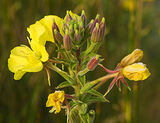 One of the most important ingredients in evening primrose oil is gamma linolenic acid (GLA) which the body utilises in part of the essential fatty acid signalling pathways in the body for such things as controlling inflammation, cell growth and the central nervous system. Evening primrose oil is used for skin disorders such as eczema, psoriasis, and acne. It is also taken to help with a whole host of conditions from rheumatoid arthritis, weak bones (osteoporosis) to cancer, high cholesterol, heart disease, dyspraxia, leg pain due to blocked blood vessels (intermittent claudication) and various neurological diseases.
One of the most important ingredients in evening primrose oil is gamma linolenic acid (GLA) which the body utilises in part of the essential fatty acid signalling pathways in the body for such things as controlling inflammation, cell growth and the central nervous system. Evening primrose oil is used for skin disorders such as eczema, psoriasis, and acne. It is also taken to help with a whole host of conditions from rheumatoid arthritis, weak bones (osteoporosis) to cancer, high cholesterol, heart disease, dyspraxia, leg pain due to blocked blood vessels (intermittent claudication) and various neurological diseases.
Hemp Seed
 Hemp seed oil is THC free but is rich in protein and poly-unsaturated fatty acids including being an excellent source of the rarer GLA. As such, it is great for use in foods and on hair and skin. As well as being very nutritious, it has long been used for its healing powers. It is anti-inflammatory, anti-ageing, balances dry skin, fights skin inflammations, helps heal skin lesions, has antioxidants, and contains moisture balancing as well as anti-bacterial and anti-viral properties. The oil is non-greasy, readily absorbs into the pores, is an emollient, and has rejuvenating and moisturising properties for the skin.
Hemp seed oil is THC free but is rich in protein and poly-unsaturated fatty acids including being an excellent source of the rarer GLA. As such, it is great for use in foods and on hair and skin. As well as being very nutritious, it has long been used for its healing powers. It is anti-inflammatory, anti-ageing, balances dry skin, fights skin inflammations, helps heal skin lesions, has antioxidants, and contains moisture balancing as well as anti-bacterial and anti-viral properties. The oil is non-greasy, readily absorbs into the pores, is an emollient, and has rejuvenating and moisturising properties for the skin.
The vitamins and minerals present in hemp seed oil are easily absorbed through the skin, resulting in a more vitamin and mineral-enriched body-care product.
Jojoba
 Jojoba oil is a liquid wax extracted from the nut of an indigenous American shrub. Unlike most other vegetable oils, it closely resembles sebum, a waxy substance produced by our skin glands, so it can act as a natural skin conditioner. It regulates natural sebum levels, helps with psoriasis and eczema, dry scalp, and oily skin. Suitable for all skin types. Indefinite shelf life.
Jojoba oil is a liquid wax extracted from the nut of an indigenous American shrub. Unlike most other vegetable oils, it closely resembles sebum, a waxy substance produced by our skin glands, so it can act as a natural skin conditioner. It regulates natural sebum levels, helps with psoriasis and eczema, dry scalp, and oily skin. Suitable for all skin types. Indefinite shelf life.
• As an anti-bacterial—Just as Native Americans have known for centuries, jojoba oil is very effective in preventing and treating infections of the skin. Long before modern medicine produced topical treatments to treat infections, jojoba oil was doing just that for Native tribes throughout Mexico and the American Southwest.
• As an anti-inflammatory—Jojoba oil reduces the painful swelling and redness that so often accompanies a skin injury. Its anti-inflammatory properties also make it an effective treatment for acne.
• As a moisturizer—Because jojoba oil is so similar to the natural oils that our bodies produce on a regular basis, it’s particularly effective as a moisturizer. It’s easily absorbed and leaves the skin feeling soft and supple. Jojoba oil is often used by masseuses because it’s non-greasy and pleasant smelling. This all-natural moisturizer is particularly effective for treating dry skin or helping to create a more youthful appearance for people with aging skin.
• As an acne treatment—Jojoba oil can benefit younger skin just as much as it benefits older skin. Acne, typically a problem for teenagers, is usually characterized by pimples and clogged pores. These blemishes can eventually become infected if not treated appropriately. Since many over-the-counter skin products contain animal fat, they can actually make acne even worse. But jojoba oil is non-greasy, and because it’s a natural antiseptic, it’s a very effective treatment for acne. Jojoba oil both cleanses and moisturizes the skin at the same time.
Kawakawa
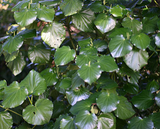 The Kawakawa tree is native to New Zealand growing wildly and abundantly throughout much of the country. The name derives from the bitter taste of the leaves which are used in Rongoa, traditional Maori medicine, to treat skin complaints such as eczema and intertrigo. Kawakawa leaves contain volatile oils and two key components of this, Myristicin and Elemicin have been shown to exhibit anti-inflammatory properties. As well as skin disorders, it has also been used to treat cuts, wounds, stomach and rheumatic pain, bites and stings, nappy rash, toothache. Kawakawa helps draw out infection from under the skin (including splinters) and also has natural antiseptic properties which help create a clean area that can repair itself. Absorbed into the blood stream, it also helps relieve bruising, burns, itch and other forms of discomfort.
The Kawakawa tree is native to New Zealand growing wildly and abundantly throughout much of the country. The name derives from the bitter taste of the leaves which are used in Rongoa, traditional Maori medicine, to treat skin complaints such as eczema and intertrigo. Kawakawa leaves contain volatile oils and two key components of this, Myristicin and Elemicin have been shown to exhibit anti-inflammatory properties. As well as skin disorders, it has also been used to treat cuts, wounds, stomach and rheumatic pain, bites and stings, nappy rash, toothache. Kawakawa helps draw out infection from under the skin (including splinters) and also has natural antiseptic properties which help create a clean area that can repair itself. Absorbed into the blood stream, it also helps relieve bruising, burns, itch and other forms of discomfort.
Pomegranate
 Pomegranates are, by far, one of the oldest natural remedies known to man. Pomegranates are rich in anthocyanidins and polyphenols which are powerful antioxidants. Pomegrantes benefit the skin on a number of different levels.
Pomegranates are, by far, one of the oldest natural remedies known to man. Pomegranates are rich in anthocyanidins and polyphenols which are powerful antioxidants. Pomegrantes benefit the skin on a number of different levels.
One of the key measures for preventing ageing of skin is through skin nutrition. Pomegranates not only nourish the skin but also prevents damage caused by free radicals. Pomegranate is high in essential fatty acids, polyphenols and anthocyanins and possesses potent anti-ageing compounds, which help stimulate keratinocyte (skin) cells thereby aiding cellular regeneration. Vitamin C present in pomegranate plays a key role in formation of collagen (skin is held together with collagen and elastin fibres), thus enabling various proteins responsible for making healthy and strong skin. Pomegranate penetrates deeply into the skin and moisturises it with micronutrients and phytochemicals. Pomegranate contains a large concentration of punicic acid, an omega-5 fatty acid that is anti-inflammatry, anti-microbial, and cell regenerating.
In regards to its protecting us from the sun, studies have shown that UVB-mediated DNA damage is greatly reduced by Pomegranate’s strong antioxidant activity. It is also thought to assist in DNA repair mechanisms thereby playing a significant role in ameliorating or preventing UVB-induced DNA damage.
Red Raspberry Seed
 Red Raspberry has a very high percentage of essential fatty acids (including omega-3 and omega-6), as well as vitamin E and provitamin A, which makes it a strong antioxidant. It conditions skin and is anti-inflammatory (with the highest alpha linolenic acid content of any fruit seed oil) and also exhibits UVB and UVC absorption capabilities. It contains carotenoids which are strong antioxidants that inhibit UV damage and stimulate cell repair. It also has very high levels of phytosterols that can help reduce trans epidermal water loss thereby helping to keep skin moisturised. Phytosterols also help to repair skin damaged by environmental factors including sun damage and may also help with cancer. Anti-ageing benefits come from ellegic acid (an anti oxidant). Red raspberry seed oil has been shown to have exceptional anti-inflammatory properties.
Red Raspberry has a very high percentage of essential fatty acids (including omega-3 and omega-6), as well as vitamin E and provitamin A, which makes it a strong antioxidant. It conditions skin and is anti-inflammatory (with the highest alpha linolenic acid content of any fruit seed oil) and also exhibits UVB and UVC absorption capabilities. It contains carotenoids which are strong antioxidants that inhibit UV damage and stimulate cell repair. It also has very high levels of phytosterols that can help reduce trans epidermal water loss thereby helping to keep skin moisturised. Phytosterols also help to repair skin damaged by environmental factors including sun damage and may also help with cancer. Anti-ageing benefits come from ellegic acid (an anti oxidant). Red raspberry seed oil has been shown to have exceptional anti-inflammatory properties.
Sesame
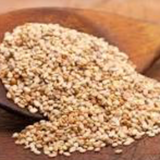 Sesame oil is filled with ingredients that can provide a nice and silky texture for your skin. The presence of fatty acids including linoleic acid makes it an effective moisturizer for skin. It is very high in vitamin E, D and B complex which helps reduce scars and other rashes on the skin.
Sesame oil is filled with ingredients that can provide a nice and silky texture for your skin. The presence of fatty acids including linoleic acid makes it an effective moisturizer for skin. It is very high in vitamin E, D and B complex which helps reduce scars and other rashes on the skin.Sesame oil has been found to be effective in the treatment of inflamed and wounded skin. It helps reduce skin infections and joint pains. Research works done on sesame seems to show that it also inhibits the development and growth of cancer. It penetrates deep into the skin helping detoxify the skin which will keep it warm and fresh. Sesame oil is also used as a remedial measure for the treatment of certain skin conditions such as eczema and psoriasis.
Another exciting feature of sesame oil is that it can slow down the ageing of skin. It fights against oxidation of the skin cells and improves skin rejuvenation. An antioxidant known as sesamol helps prevent the appearances of wrinkles and small pores in skin leading to a healthy glow.
Although there are many natural oils capable of providing moisturizing and softening, sesame oil is one of the best. It works well for people with normal or dry skin. Sesame oil is capable of forming a protective film over the skin to eliminate the damages done by free radicals.
Sesame oil is rich in essential fatty acids like linoleic acid and palmitic acids. Linoleic acid gives both antibacterial and anti-inflammatory properties. It is also rich in minerals like copper, manganese, calcium and magnesium. Niacin is a variant of B-complex that can reduce LDL- cholesterol levels in blood. Other than that, sesame oil is capable of enhancing GABA activity inside the brain which in turn helps in reducing anxiety and neurosis.
Soya Bean
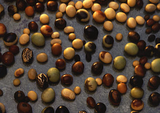 Soya bean oil has an excellent balance of fatty acids. Omega-3 fatty acids can reduce dangerous cholesterol levels and counteract the negative types. Other fatty acids like stearic acid, palmitic acid, and oleic acid are also found in balanced quantities. The fatty acid composition of soybean oil, as well as the powerful plant sterols, such as β-sitosterol can cause a reduction in cholesterol storage in the gut and reduce chances of atherosclerosis and other heart conditions, such as heart attacks and strokes.
Soya bean oil has an excellent balance of fatty acids. Omega-3 fatty acids can reduce dangerous cholesterol levels and counteract the negative types. Other fatty acids like stearic acid, palmitic acid, and oleic acid are also found in balanced quantities. The fatty acid composition of soybean oil, as well as the powerful plant sterols, such as β-sitosterol can cause a reduction in cholesterol storage in the gut and reduce chances of atherosclerosis and other heart conditions, such as heart attacks and strokes.
Soybean oil has an impressively high level of vitamin K, which has been consistently connected with improving the symptoms of Alzheimer’s, and even reversing the effects in some cases. The vitamin K acts as an antioxidant against free radicals, keeping them from damaging the neural cells. Another important function of vitamin K is its osteotrophic potential, which means that it can stimulate the regrowth or increased healing of bone. While this is often associated with calcium, vitamin K, of which soybeans has a lot, can also stimulate bone development to prevent certain conditions like osteoporosis, which is often a natural result of the aging process.
Omega-3 fatty acids, which make up 7% of the total fatty acid content in soybean oil, are integral to protecting the cardiovascular system in the role of scraping our “bad” cholesterol, but it also protects cell membranes. This includes the very fragile and dangerous areas of the skin and eyes, both of which are common entrance points for bacteria and other foreign materials. These omega-3s also promote healthier vision by acting as antioxidants and neutralizing free radicals that can cause macular degeneration and cataracts.
The high vitamin E content in soybean oil also acts as a powerful antioxidant while similarly protecting the skin from the damage of free radicals. Vitamin E is directly associated with improving the appearance of blemishes, reducing acne scarring, protecting the skin against sunburn, and stimulating the regrowth of new skin cells to promote healing. Vitamin E is also associated with general antioxidant activity in the rest of the body, which boosts the immune system and helps to eliminate free radicals that cause certain conditions like cancer, premature aging, cognitive disorders, and heart diseases.
Tamanu

Tamanu oil is a traditional topical skin protection oil used for centuries throughout the Pacific Islands. It is highly valued in traditional folk medicine in regions such as Indonesia, Papua New Guinea and the Philippines.
Tamanu exhibits remarkable healing, restorative and protective qualities and is often recommended for skin complaints such as scars and stretch marks caused by the break down of collagen and elastin. It has a unique ability to stimulate the growth of healthy new skin tissue (“cicatrisation”) which also makes it great for treating burns. It is thought to impart anti-inflammatory, antioxidant, antibacterial, antiviral, and photoprotective activity. Modern research has shown that tamanu oil is effective in providing corneal protection from burns as long as it is used in appropriate concentrations.
Essential oils
Use of essential oils is a whole science in itself, often referred to as aromatherapy. Used properly, they are powerful medicines. Normal uses of essential oils are via topical application diluted in a suitable carrier or diffused in the air e.g. with a steam diffuser. It is unusual to apply these oils undiluted and in general they should not be ingested. In our products we only use pure therapeutic grade essential oils so as to ensure the quality, proper processing and origins of the oils.
Carrot Seed
 Carrot seed oil is one of the strongest revitalising oils. While effectively killing infections on the skin and in open wounds, it stimulates the growth of new healthy tissue. It has an earthy aroma which is good for relieving stress and anxiety. As a powerful anti-oxidant it helps protect the skin from ageing wrinkles. It also helps with muscle aches, purifying and improving circulation. It has also been found to help cure some forms of cancer.
Carrot seed oil is one of the strongest revitalising oils. While effectively killing infections on the skin and in open wounds, it stimulates the growth of new healthy tissue. It has an earthy aroma which is good for relieving stress and anxiety. As a powerful anti-oxidant it helps protect the skin from ageing wrinkles. It also helps with muscle aches, purifying and improving circulation. It has also been found to help cure some forms of cancer.
Cedarwood
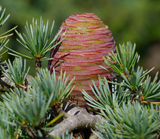 Cedarwood is sedative, astringent and antiseptic. It helps reduce anxiety, nervous tension and improves concentration/ It is also useful for catarrhal conditions, coughs, chronic bronchitis, cystitis, UTIs, oily skin, acne, and acts as an insect repellent.
Cedarwood is sedative, astringent and antiseptic. It helps reduce anxiety, nervous tension and improves concentration/ It is also useful for catarrhal conditions, coughs, chronic bronchitis, cystitis, UTIs, oily skin, acne, and acts as an insect repellent.
Chamomile
 Chamomile is one of the oldest medicinal plants. Known as a plant doctor for its ability to help keep other plants healthy, it is also highly regarded for its medicinal use as it contains a powerful anti-inflammatory agent called azulene when distilled as an essential oil. The two main species are Roman chamomile (anthemis nobilis) and German chamomile (matricaria recutita) which vary in amounts of azulene and overall effect. Chamomile has both a calming and anti-inflammatory effect on the skin and body which is useful for treating acne, eczema, psoriasis and irritation. It is also useful for treating bacterial skin diseases including those of the mouth and gums, and respiratory tract inflammation (when inhaled).
Chamomile is one of the oldest medicinal plants. Known as a plant doctor for its ability to help keep other plants healthy, it is also highly regarded for its medicinal use as it contains a powerful anti-inflammatory agent called azulene when distilled as an essential oil. The two main species are Roman chamomile (anthemis nobilis) and German chamomile (matricaria recutita) which vary in amounts of azulene and overall effect. Chamomile has both a calming and anti-inflammatory effect on the skin and body which is useful for treating acne, eczema, psoriasis and irritation. It is also useful for treating bacterial skin diseases including those of the mouth and gums, and respiratory tract inflammation (when inhaled).
Frankincense
 Frankincense (aka olibanum) is a resin extracted from trees of the Boswellia genus. It has been used since ancient times for perfumery and medicine (the name Frankincense comes from the French term meaning quality incense). Traditional medicines used it for treating arthritis, healing wounds, strengthening the female hormone system and purifying the air. They also used it for stings, tumours and ulcers. Recent clinical research has shown it to be effective in treating certain forms of cancer, arthritis and depression. In skin care, it is used for dry and mature skin, scars, wounds, wrinkles, ulcers, protecting cells and enhancing a healthy blood flow.
Frankincense (aka olibanum) is a resin extracted from trees of the Boswellia genus. It has been used since ancient times for perfumery and medicine (the name Frankincense comes from the French term meaning quality incense). Traditional medicines used it for treating arthritis, healing wounds, strengthening the female hormone system and purifying the air. They also used it for stings, tumours and ulcers. Recent clinical research has shown it to be effective in treating certain forms of cancer, arthritis and depression. In skin care, it is used for dry and mature skin, scars, wounds, wrinkles, ulcers, protecting cells and enhancing a healthy blood flow.
Geranium
 Geranium helps you relax and beatify your skin. Traditionally it is used to support the circulatory and nervous systems. A great deal of its strength lies in its ability to revitalize body tissues.
Geranium helps you relax and beatify your skin. Traditionally it is used to support the circulatory and nervous systems. A great deal of its strength lies in its ability to revitalize body tissues.
Helichrysum - Immortelle
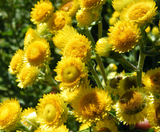 This remarkable essential oil is known for its ability to work effectively on deep and open wounds, bruises, areas of trauma and haemorrhaging. It stimulates cell regeneration as well as reducing inflammation or fever.
This remarkable essential oil is known for its ability to work effectively on deep and open wounds, bruises, areas of trauma and haemorrhaging. It stimulates cell regeneration as well as reducing inflammation or fever.
Jasmine
 Jasmine essential oil is extracted from the flowers which must be hand picked soon after they first open when their fragrance is strongest and processed without delay. One of the most expensive oils, it is called the King of Oils in perfumery and acts as a powerful aphrodisiac. It is considered one of the most effective essential oils for treating nervous anxiety and depression. Women can benefit from its use during childbirth. In skin care it is used to treat dry and irritated skin.
Jasmine essential oil is extracted from the flowers which must be hand picked soon after they first open when their fragrance is strongest and processed without delay. One of the most expensive oils, it is called the King of Oils in perfumery and acts as a powerful aphrodisiac. It is considered one of the most effective essential oils for treating nervous anxiety and depression. Women can benefit from its use during childbirth. In skin care it is used to treat dry and irritated skin.
Kanuka
 Kanuka is a New Zealand native which provides powerful anti-bacterial, anti-fungal and anti-ageing properties. It is quite similar in action to its more well known cousin, Manuka which is well known for its sourcing of medicinally active honey. Uses of Kanuka essential oil also include chronic inflammatory conditions such as rheumatoid arthritis and fibromyalgia, sore muscles, strains, back pain, pain associated with burns, intestinal complaints.
Kanuka is a New Zealand native which provides powerful anti-bacterial, anti-fungal and anti-ageing properties. It is quite similar in action to its more well known cousin, Manuka which is well known for its sourcing of medicinally active honey. Uses of Kanuka essential oil also include chronic inflammatory conditions such as rheumatoid arthritis and fibromyalgia, sore muscles, strains, back pain, pain associated with burns, intestinal complaints.
Lavender
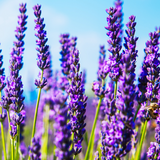 Lavender is famous for its ability to treat burns. It is antiseptic, antiphlogistic (relieves inflammation) and cicatrisant (helps wounds close and reduces scarring). It also acts as an insect repellent and treats insect bites such as mosquito and spider bites. It is soothing, calming and cooling; an excellent oil for all skin types. Research has shown that lavender is one of the most active essential oils against MRSA. Lavender oil is moderately active against one of the the principal bacteria involved in acne, two of the principal fungi that can cause skin problems such as athlete’s foot and ringworm and highly active against a third, Candida albicans.
Lavender is famous for its ability to treat burns. It is antiseptic, antiphlogistic (relieves inflammation) and cicatrisant (helps wounds close and reduces scarring). It also acts as an insect repellent and treats insect bites such as mosquito and spider bites. It is soothing, calming and cooling; an excellent oil for all skin types. Research has shown that lavender is one of the most active essential oils against MRSA. Lavender oil is moderately active against one of the the principal bacteria involved in acne, two of the principal fungi that can cause skin problems such as athlete’s foot and ringworm and highly active against a third, Candida albicans.
Myrrh
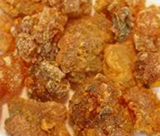 Myrrh has been used since ancient times and is famous for both its perfume and its antiseptic and healing capabilities. It is anti-inflammatory, good for bruises and treating chronic wounds and ulcers. It also acts as an astringent and helps to tone the skin. Ancient Egyptians used it in preparations to reduce wrinkles and preserve a youthful appearance. The therapeutic qualities are often mentioned in biblical texts as well as those of the Greeks and Romans.
Myrrh has been used since ancient times and is famous for both its perfume and its antiseptic and healing capabilities. It is anti-inflammatory, good for bruises and treating chronic wounds and ulcers. It also acts as an astringent and helps to tone the skin. Ancient Egyptians used it in preparations to reduce wrinkles and preserve a youthful appearance. The therapeutic qualities are often mentioned in biblical texts as well as those of the Greeks and Romans.
Neroli
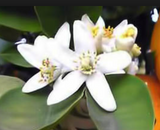 Neroli is an extract of the orange tree blossom and valued as one of the oils of fine perfumery. Traditionally it was one of the oils in the classic Eau de cologne valued as a gentle tonic for the nervous system. Neroli has a range of benefits acting as an antidepressant, antiseptic, bactericidal, cicatrisant (helps close and heal wounds) and deodorant. It is beneficial for all skin types, especially dry, sensitive skin with broken capillaries. It is reputed to have a rejuvenating effect as it can stimulate the growth of healthy new skin cells.
Neroli is an extract of the orange tree blossom and valued as one of the oils of fine perfumery. Traditionally it was one of the oils in the classic Eau de cologne valued as a gentle tonic for the nervous system. Neroli has a range of benefits acting as an antidepressant, antiseptic, bactericidal, cicatrisant (helps close and heal wounds) and deodorant. It is beneficial for all skin types, especially dry, sensitive skin with broken capillaries. It is reputed to have a rejuvenating effect as it can stimulate the growth of healthy new skin cells.
Sweet Orange
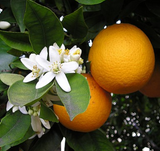 Sweet orange provides a zesty burst of freshness. It is antidepressant, antiseptic, therapeutic, antispasmodic and very calming and relaxing. It is also a digestive tonic and acts as a lymphatic stimulant.
Sweet orange provides a zesty burst of freshness. It is antidepressant, antiseptic, therapeutic, antispasmodic and very calming and relaxing. It is also a digestive tonic and acts as a lymphatic stimulant.
Petitgrain
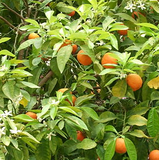 Petitgrain is harvested from the leaves of the bitter orange tree by steam distillation. It has a tonic effect on the skin and is helpful for acne, skin blemishes and helps to reduce overactive sebaceous glands.
Petitgrain is harvested from the leaves of the bitter orange tree by steam distillation. It has a tonic effect on the skin and is helpful for acne, skin blemishes and helps to reduce overactive sebaceous glands.
Palmarosa
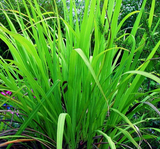 Palmarosa is a grass in the lemongrasses genus (Cymbopogon) native to India and Indochina, but widely cultivated in many places for its sweet and rose-like aromatic oil. It is is valued for both its scent and for a number of traditional medicinal and household uses. It makes for an effective insect repellent.
Palmarosa is a grass in the lemongrasses genus (Cymbopogon) native to India and Indochina, but widely cultivated in many places for its sweet and rose-like aromatic oil. It is is valued for both its scent and for a number of traditional medicinal and household uses. It makes for an effective insect repellent.
Palmarosa is good for acne, dermatitis, minor skin infections and dry, undernourished skin. Used extensively in skin care, it helps balance sebum production, is antiseptic, hydrating, and reported to stimulate cellular regeneration.
Patchouli
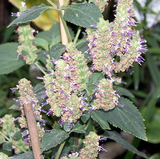 Patchouli is helpful for most skin types ranging from dry, cracked skin all the way to helping to regulate oily skin and acne.
Patchouli is helpful for most skin types ranging from dry, cracked skin all the way to helping to regulate oily skin and acne.
It has regenerating, disinfecting, moisturising and cooling actions. Some with eczema, psoriasis and dandruff have said that patchouli is especially helpful for them. It was used as part of the standard medicinal library in Indochina, being effective in reducing fever and treating insect and snake bites.
Damask Rose
 Rose oil is one of the most highly prized oils. Known as the queen of oils, it has a most elegantly beautiful and exquisite scent. However this comes at a price as it takes 10,000 roses to fill just one 5ml bottle, making it one of the most expensive essential oils on the market (when not adulterated by unscrupulous dealers). Although famous as a powerful aphrodisiac, it also has many other benefits including acting as a relaxant, calming nerves, an anti-depressant as well as relieving coughs and spasms. It also acts against viruses including HIV and is bactericidal and anti-inflammatory helping to heal wounds, cleanse and purify. The citronellol and farnesol present in rose repels insects including mosquitoes. It also contains eugenol, a powerful anti-oxidant.
Rose oil is one of the most highly prized oils. Known as the queen of oils, it has a most elegantly beautiful and exquisite scent. However this comes at a price as it takes 10,000 roses to fill just one 5ml bottle, making it one of the most expensive essential oils on the market (when not adulterated by unscrupulous dealers). Although famous as a powerful aphrodisiac, it also has many other benefits including acting as a relaxant, calming nerves, an anti-depressant as well as relieving coughs and spasms. It also acts against viruses including HIV and is bactericidal and anti-inflammatory helping to heal wounds, cleanse and purify. The citronellol and farnesol present in rose repels insects including mosquitoes. It also contains eugenol, a powerful anti-oxidant.
Rosewood
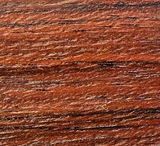 Rosewood is soothing to the skin, emotionally stabilizing it is used for relaxation. Antiseptic and helps treat acne, dermatitis, sensitive skin.
Rosewood is soothing to the skin, emotionally stabilizing it is used for relaxation. Antiseptic and helps treat acne, dermatitis, sensitive skin.
Sandalwood
 Sandalwood is high in sesquiterpenes, a naturally occurring chemical compound found in certain essential oils, known for having a positive impact on health and wellness, particular in regards to the brain. It is one of the oils with the capability of passing the blood brain barrier, a necessary component to supporting cellular health but it's probably the emotional wellness and aromatic influence that is more widely known, having been long used in fine perfumes. As a fragrance, sandalwood is known for promoting mental clarity, helping with memory. It is also relaxing and calming and acts as a natural aphrodisiac. It also has an astringent action which makes it great as a skin toner. It helps reduce scars and also acts as an antiseptic, anti-inflammatory and anti-viral agent making it useful in wound care.
Sandalwood is high in sesquiterpenes, a naturally occurring chemical compound found in certain essential oils, known for having a positive impact on health and wellness, particular in regards to the brain. It is one of the oils with the capability of passing the blood brain barrier, a necessary component to supporting cellular health but it's probably the emotional wellness and aromatic influence that is more widely known, having been long used in fine perfumes. As a fragrance, sandalwood is known for promoting mental clarity, helping with memory. It is also relaxing and calming and acts as a natural aphrodisiac. It also has an astringent action which makes it great as a skin toner. It helps reduce scars and also acts as an antiseptic, anti-inflammatory and anti-viral agent making it useful in wound care.
Research has also shown that it helps kill malignant cells in melanomas.
Vetiver
 Vetiver is a grass is commonly found in the Indian subcontinent. It has a very pleasant, mild, earthy, and musky smell which has a cooling effect on the body and the mind. The essential oil is obtained by steam distillation of the plant roots and is used extensively in the perfume industry. The soothing and cooling effect it has helps calm inflammation including that caused by heat stroke and dehydration. It also helps eliminate scars and other marks promoting growth of new tissue to replace the dead and discoloured old ones. It also attacks some bacteria which can cause sepsis and is a very safe oil to use. It helps rejuvenate the body and boost the immune system. It has also been found to increase libido, acting as an aphrodisiac. Vetiver essential oil also benefits patients with rheumatism, arthritis, gout, muscular aches, and also helps to reduce the dryness and cracking of the skin.
Vetiver is a grass is commonly found in the Indian subcontinent. It has a very pleasant, mild, earthy, and musky smell which has a cooling effect on the body and the mind. The essential oil is obtained by steam distillation of the plant roots and is used extensively in the perfume industry. The soothing and cooling effect it has helps calm inflammation including that caused by heat stroke and dehydration. It also helps eliminate scars and other marks promoting growth of new tissue to replace the dead and discoloured old ones. It also attacks some bacteria which can cause sepsis and is a very safe oil to use. It helps rejuvenate the body and boost the immune system. It has also been found to increase libido, acting as an aphrodisiac. Vetiver essential oil also benefits patients with rheumatism, arthritis, gout, muscular aches, and also helps to reduce the dryness and cracking of the skin.
Plant Butters
Shea butter
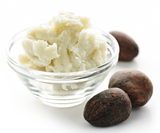
Shea butter contains fatty acids which help in retaining the skin moisture as well as maintaining skin elasticity. Shea butter is a rich source of essential vitamin A, E and F. Vitamin A and E are highly beneficial for maintaining a balanced and healthy skin. It also has a high level of cinnamic acid, a natural sun screen. So, it provides some degree of protection from the sun. It is anti-inflammatory making it useful in treating rheumatism but it is used most often to help heal the cracked and chapped dry skin and to also ensure that our skin is hydrated and moisturized. Regular use can also aid with conditions such as acne, eczema and psoriasis.
Mango butter
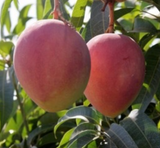
Mango butter is extracted from the kernels of the mango fruit. It shares a lot of the same uses as Shea butter; however the fatty acid profile varies slightly with an enhanced level of anti-oxidants and vitamins. Mango butter has protective effects against UV radiation and also helps treat skin rash, eczema, insect bites, and poison ivy. Mango butter can help protect and heal skin from the damage caused by sunburn and frostbite and is used to smooth fine lines and wrinkles.
Aloa vera coconut butter
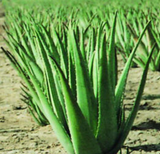
Aloe vera butter is formed by mixing the aloe vera plant with coconut oil to create an infusion. The resulting butter retains the many wonderful healing properties of the aloe vera plant, further enhanced by the properties of the coconut oil. This product is full of vitamins, minerals, anti-oxidants, amino acids and polysaccharides with special healing powers. The Ancient Egyptians valued aloe vera as a treatment for infections, rashes, and burns, and referred to it as the "plant of immortality.” It is used to treat swelling and inflammation caused by insect bites and stings, helps treat dry scalp and dandruff, sunburn, and greatly accelerates healing of ulcers and other wounds including damaged mucous membranes and diabetic induced conditions. Aloe vera is used to address common skin problems like psoriasis, eczema, and rashes and is known to fight acne because of its ability to reduce skin inflammations, blistering, and itching.
Added Vitamins, co-enzymes and concentrates
There are many vitamins and minerals naturally present in the plant oils used in our product. However, we do boost the product with addition of the following ingredients (depending on the specific product we are producing).
Tocopherol Acetate
Tocopherol Acetate aka Vitamin E is a powerful anti-oxidant which works to block free radicals from the body that play a large part in the aging process. If we can fight off free radicals, then we can reduce wrinkles and keep the skin youthful-looking. It also strengthening the capillary walls and improves moisture and elasticity, acting as a natural anti-aging nutrient within your body. Studies have shown that vitamin E reduces inflammation both within your body and on your skin.
D-Panthenol
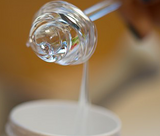
D-Panthenol, also known as pro-vitamin B5, has been dubbed the “anti-stress vitamin” because it helps support the skin’s ability to manage stress. It helps maintain the strength of the skin’s outer barrier sealing in hydration and aids infusion of nutrients that work to fight the environmental toxins that are also stressors to our skin helping to defy the ageing process. It also helps manage the healthy levels of fibroblasts – the cells that are most prolific in our skin’s connective tissue – which in turn boosts collagen and elastin, the proteins that help keep skin luminous, elastic and even toned.
Co-enzyme Q10
 Co-enzyme Q10 is used by your cells to produce the energy your body needs for cell growth and maintenance. It also functions as an antioxidant, which protects the body from damage caused by harmful molecules. Taken internally, it has been indicated in cases of heart failure, as well as cancer, muscular dystrophy, and periodontal disease and to help recovery after exercise.
Co-enzyme Q10 is used by your cells to produce the energy your body needs for cell growth and maintenance. It also functions as an antioxidant, which protects the body from damage caused by harmful molecules. Taken internally, it has been indicated in cases of heart failure, as well as cancer, muscular dystrophy, and periodontal disease and to help recovery after exercise.
Hyaluronic acid
Hyaluronic acid is naturally occurring in the skin and able to hold 1000 times its weight in water (once inside the skin), it has powerful moisturising properties hydrating dry and aged skin, decreasing “epidermis water loss” associated with sun exposure, skin dryness or flakiness. Over time, it helps reduce wrinkles and skin sagging and gives fuller lips, increased cheek volume and general skin plump and bounce. HA is beneficial for treating cold sores and mouth sores, ulcers, wounds, bites and burns due to how it keeps damaged tissue moist. It also provides sunburn relief. Appropriately administered, it has also been found to assist with dry eyes and aching joints.
Aloe Vera concentrate
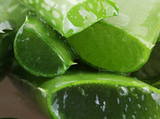 By adding 200x concentrate, we are able to greatly boosts the aloe vera content of the overall mix. We only use certified high quality product extracted using a patented process which preserves the active ingredients from the aloe vera inner leaf fillet.
By adding 200x concentrate, we are able to greatly boosts the aloe vera content of the overall mix. We only use certified high quality product extracted using a patented process which preserves the active ingredients from the aloe vera inner leaf fillet.
UV Filters
In the moisturiser, a modest level of zinc oxide has been added to the Flora blend to further enhance the natural UV filtering already supplied by the plant oils. Zinc is an essential element for our bodies and has a number of benefits. Note however, that nano-particles of zinc oxide, in spite of them being transparent in the visible spectral range and generally considered safe for humans, are not at all so for aquatic life. For this reason, we have chosen to avoid using the nano particle forms of zinc oxide. In our moisturiser, the levels of (non-nano) zinc oxide are not sufficient to cause any significant whitening so they can be cosmetically acceptable for our customers. To give customers more choice, we have opted to include zinc oxide only in the flora moisturiser. Note that in both moisturisers, the active anti-oxidant radical scavenging activity of the plant oils does help protect exposed skin, but not enough to warrant its use as a sunscreen product.In our sunscreen, high SPF factors are achieved using a tried and tested combination of FDA approved UVA and UVB filters:
butyl methoxy dibenzoylmethane (aka avobenzone) 3%
octyl methoxy-cinnamate 7.5%
octyl salicylate 5%
The last ingredient acts as both a UV filter and photo stabiliser for the other UV filters.
Abzorba Gel
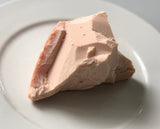
Abzorba Gel is a proprietary formulation created by Futec NZ and provides an encapsulating gel for our natural plant oils. This gel provides emollient, moisturising and protective agents as well as accelerating absorption into the skin. It has been used successfully in initial trials in hospitals to treat a number of cases involving serious burns and wounds of various kinds. The gel is made from safe synthetic ingredients approved for use in cosmetics.
Other
Acetylated Lanolin

Acetylated lanolin alcohol is derived from lanolin which is a product produced by wooly animals such as sheep to protect their wool and skin from climate and the environment. On application acetylated lanolin leaves a distinct, velvety feel. It effectively degreases almost any formulation and its surface activity makes it a useful solvent for sebum to cleanse the skin of surface oils. This lanolin derivative is described as a multi-functional, low viscosity emollient recommended for use in creams and lotions.
Talc

Talc or talcum is a clay mineral (a hydrated magnesium silicate) commonly found in belts of metamorphic rock such as soapstone and white and blue schists. These rocks occur widely in such places as the western United States, Italian alps and Himalayas. It has a perfect basal cleavage and is a very soft mineral giving the powder a smooth textured feel and making it one the oldest known solid lubricants. Talc has many uses in cosmetics and other personal care products; in food, such as rice and chewing gum; and in the manufacture of tablets. For example, it may be used to absorb moisture, to prevent caking, to make facial makeup opaque, or to improve the feel of a product.
